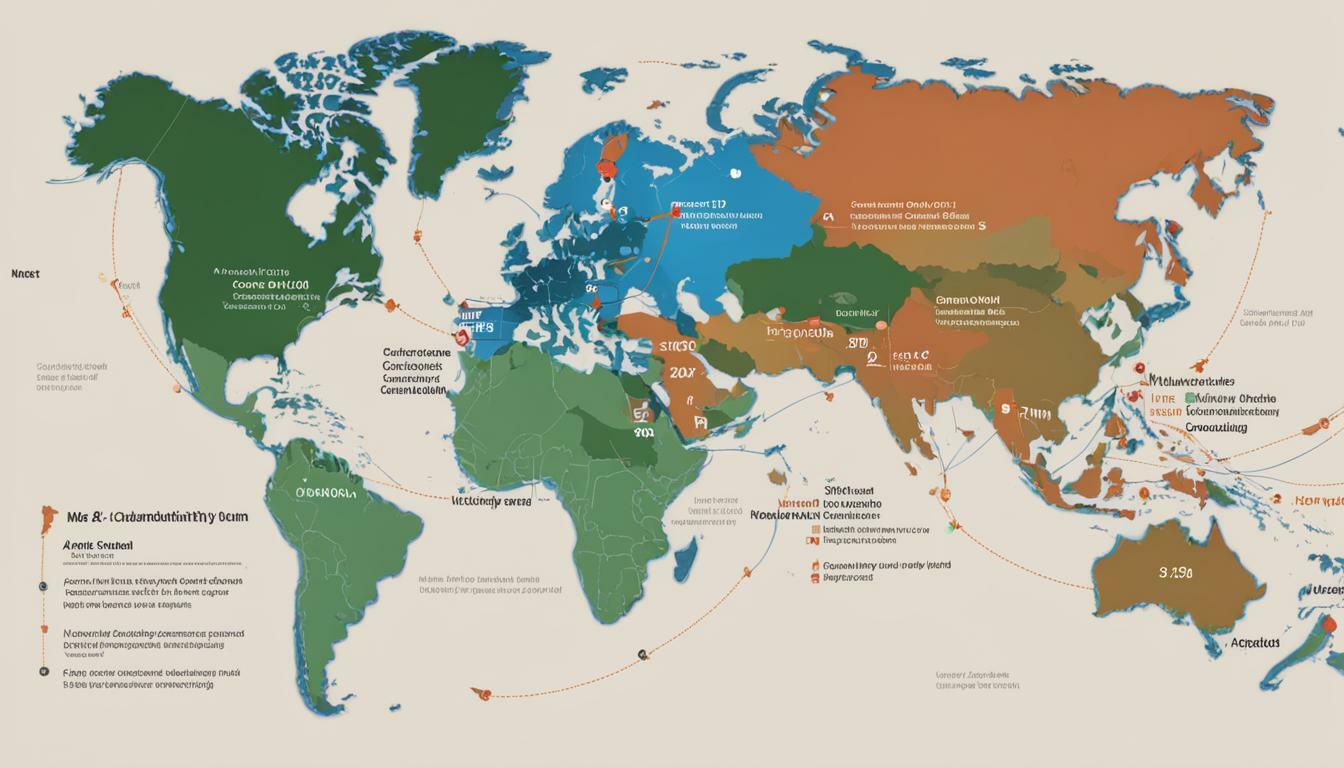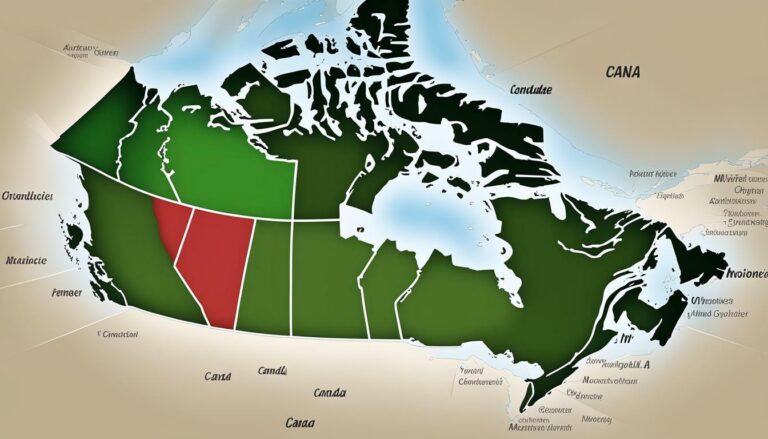Understanding How Long Can You Stay Outside Canada After Getting PR
Once you have obtained Permanent Resident (PR) status in Canada, it is crucial to understand how long you can stay outside the country while still maintaining your PR status. The Canadian government has specific rules and restrictions in place to ensure that PR holders fulfill their residency requirements and actively contribute to Canadian society.
Key Takeaways:
- To maintain your PR status, you must have been in Canada for at least 730 days during the last five years.
- These 730 days don’t have to be continuous, and some time spent abroad may count towards the 730 days.
- Keeping a travel journal can help you track your time in Canada and ensure you meet the residency requirements.
- Failure to meet the residency requirements can result in the loss of your PR status and inadmissibility to Canada.
- The old “6-month rule” is no longer in effect, and PR cards are now valid for a 5-year period.
Residency Requirements for PR Holders
To maintain your PR status in Canada, you must fulfill certain residency requirements, including the length of time you must spend in the country. According to the Canadian government, in order to preserve your PR status, you must have been in Canada for at least 730 days during the last five years. These 730 days do not have to be continuous, and some time spent abroad may count towards the 730-day requirement.
It is advisable to keep a travel journal to accurately track the amount of time you spend in Canada. This will help you ensure that you meet the residency requirements and do not risk losing your PR status. By documenting your days in Canada, you can provide evidence of your physical presence in the country if needed.
It is important to note that failing to meet the residency requirements can have serious consequences. If you have not been in Canada for at least 730 days in the last five years, or if you give up your PR status or become inadmissible to Canada, you may lose your PR status. It’s crucial to understand that as a permanent resident, you do not have the same protections and privileges as Canadian citizens, and committing a serious offense could lead to permanent expulsion from Canada.
Counting Absences and Physical Presence
When calculating your time spent in Canada, it’s important to understand how absences from the country are counted. The dates of your departure and return are treated differently when it comes to determining your physical presence requirement. Any days that you were physically present in Canada, even if you left the country for a portion of those days, will not be counted as absences.
For example, if you leave Canada on January 1st and return on January 10th, only the days that you were outside of Canada (January 2nd to 9th) will be counted as absences. The days you were physically present in Canada (January 1st and 10th) will not be considered absences.
By understanding and fulfilling the residency requirements as a PR holder, you can maintain your status in Canada and continue to enjoy the benefits and opportunities that come with it.
Calculation of the 730-Day Requirement
The Canadian government mandates that PR holders must have spent at least 730 days in Canada within the last five years to preserve their PR status. These 730 days don’t have to be continuous, meaning that time spent abroad may count towards the 730-day requirement. It’s important to keep track of your time in Canada to ensure you meet this residency obligation.
One way to effectively track your time is by using a travel journal. This journal can serve as evidence of your physical presence in Canada, making it easier to calculate the number of days you’ve spent in the country. The travel journal should include the dates of your departures and returns to Canada, as well as any other relevant information such as flight itineraries, hotel receipts, and immigration stamps.
However, it’s important to note that not all absences from Canada are counted towards the 730-day requirement. Certain situations, such as accompanying a Canadian citizen spouse or common-law partner abroad, may qualify as exceptions to the rule. The government also considers humanitarian and compassionate grounds when evaluating an individual’s PR status. If you have concerns about meeting the residency obligation, it’s recommended to consult with competent immigration professionals who can provide guidance and support.
| Absences | Counted Days |
|---|---|
| Accompanying a Canadian citizen spouse or common-law partner | May count towards the 730-day requirement |
| Employment or business obligations outside Canada | May count towards the 730-day requirement |
| Accompanying a Canadian citizen dependent child | May count towards the 730-day requirement |
| Serious illness or injury | May count towards the 730-day requirement |
| Other exceptional circumstances | May be considered on humanitarian and compassionate grounds |
Importance of Keeping Track of Time Spent in Canada
It is crucial for PR holders to keep a record of their time spent in Canada to ensure they meet the required residency obligations. According to the Canadian government, to maintain your PR status, you need to have been in Canada for at least 730 days within the last five years. These days do not have to be consecutive, and certain absences can still count towards the total. By keeping track of your time in Canada, you can accurately calculate your days of physical presence and avoid any potential issues with maintaining your PR status.
One effective way to keep a record of your time in Canada is by using a travel journal. This journal should include dates of entry and exit, as well as any supporting documentation such as boarding passes or immigration stamps. By maintaining a detailed travel journal, you can easily track your physical presence in Canada and provide evidence if required.
Additionally, it is essential to understand that being physically present in Canada for a partial day counts as a full day towards your residency requirement. For example, if you leave Canada on June 1 and return on June 30, both days will count towards the 730-day requirement. It’s important to keep this in mind to accurately calculate your days of physical presence and ensure you meet the necessary residency obligations.
| Important Points to Remember |
|---|
| Keep a travel journal to track your time in Canada. |
| Include dates of entry, exit, and any supporting documentation. |
| Partial days in Canada count as full days towards residency requirements. |
By maintaining a meticulous record of your time spent in Canada and understanding the rules regarding physical presence, you can ensure that you meet the necessary residency obligations and maintain your PR status. If you have any concerns or questions about your PR status, it is advisable to seek assistance from competent immigration professionals who can provide guidance specific to your situation.
Consequences of Failing to Meet Residency Requirements
Failure to meet the required residency obligations can lead to the loss of PR status and potential challenges in returning to Canada. As a permanent resident, it is crucial to understand and fulfill the residency requirements set by the Canadian government. According to the guidelines, PR holders must have been physically present in Canada for at least 730 days in the last five years to maintain their status.
However, it’s important to note that these 730 days do not have to be consecutive. Some time spent outside Canada may still count towards the 730-day requirement. To keep track of your time in Canada, it is recommended to maintain a comprehensive travel journal. This journal will serve as a record of your physical presence in the country and can be useful in demonstrating your compliance with the residency requirements.
Failure to meet the residency obligations can have severe consequences. If you haven’t been in Canada for a minimum of 730 days in the last five years, you risk losing your PR status. In addition, giving up your PR status voluntarily or becoming inadmissible to Canada can also result in the loss of your permanent resident status.
It is important to understand that permanent residents do not enjoy the same protections and privileges as Canadian citizens. Committing a serious offense as a permanent resident may lead to permanent expulsion from Canada. To ensure that you meet the residency requirements and maintain your PR status, seek guidance from qualified immigration professionals who can provide assistance and advice tailored to your specific situation.
| Consequences of Failing to Meet Residency Requirements |
|---|
| Loss of PR status |
| Inadmissibility to Canada |
| Challenges in returning to Canada |
| Potential permanent expulsion from Canada |
“Maintaining compliance with the residency requirements is crucial for permanent residents of Canada. Failure to meet these obligations can result in the loss of PR status and may pose challenges when trying to return to Canada.”
Summary:
- Permanent residents must meet the residency requirements to maintain their status.
- 730 days of physical presence in Canada within the last five years is required.
- Maintaining a travel journal can help track time spent in Canada.
- The consequences of failing to meet residency requirements include loss of PR status and potential challenges in returning to Canada.
- Committing serious offenses can lead to permanent expulsion from Canada.
Changes to the “6-Month Rule” and PR Card Validity Period
The previous “6-month rule” no longer applies, and PR card holders can freely travel outside of Canada within the five-year validity period of their PR card. This change provides more flexibility for permanent residents to maintain their PR status while traveling internationally. Previously, PR card holders were required to spend at least six months out of every year in Canada to retain their status.
The updated regulations now allow PR card holders to stay outside Canada for longer periods of time without risking their PR status. The PR card, which serves as an identification document for permanent residents, is now valid for a period of five years. This means that you can travel outside of Canada for extended periods, as long as you return within the validity period of your PR card.
However, it’s important to note that when it comes time to renew your PR card, you must have accumulated at least two years of residency in Canada within the five-year period. This residency requirement ensures that permanent residents uphold their commitment to Canada and maintain strong ties to the country. Exceptions may be made on humanitarian and compassionate grounds for individuals who are unable to meet the residency requirement due to extenuating circumstances.
| Change | Previous Rule | New Rule |
|---|---|---|
| Duration of Stay Requirement | Six months out of every year | At least two years within a five-year period |
| PR Card Validity | Five years | Five years |
| Exceptions | N/A | Humanitarian and compassionate grounds |
It’s crucial for PR card holders to understand and comply with these new regulations to avoid jeopardizing their PR status. Keeping accurate records of travel dates and maintaining a travel journal can help ensure that you meet the residency requirements when it’s time to renew your PR card. If you have any concerns or questions regarding your PR status or travel restrictions, it’s advisable to seek assistance from competent immigration professionals who can provide guidance and support.
Renewing the PR Card and Residency Requirement
When renewing your PR card, it is essential to have accumulated at least two years of residency within the five-year period, unless specific grounds apply. The Canadian government requires permanent residents to spend a significant amount of time in the country to maintain their PR status. Failure to meet the residency requirement may result in the loss of your PR status and potentially affect your ability to re-enter Canada.
A travel journal can be a valuable tool in keeping track of your physical presence in Canada. By documenting your time spent in the country, you can easily calculate the number of days you have been present and ensure that you meet the minimum residency requirements. It’s important to note that the dates when you leave or return to Canada will not be counted as absences, as you were physically present in the country for a portion of those days.
Renewing your PR card is a crucial step in maintaining your PR status. The PR card serves as proof of your permanent resident status and is required when traveling to and from Canada. To be eligible for PR card renewal, you must meet the residency obligations and have accumulated the necessary amount of time in Canada. Exceptions can be made for humanitarian and compassionate grounds if you are unable to meet the residency requirement due to extenuating circumstances.
If you have concerns about meeting the residency requirements or renewing your PR card, it is advisable to seek assistance from competent immigration professionals who can provide guidance and support throughout the process. They can help you understand the specific requirements and exceptions that may apply to your situation, ensuring that you maintain your PR status and can continue to enjoy the benefits of being a permanent resident of Canada.
| Key Points: |
|---|
| – Renewing your PR card requires a minimum of two years of residency within a five-year period. |
| – Keeping a travel journal can help you keep track of your physical presence in Canada. |
| – Dates when you leave or return to Canada do not count as absences. |
| – Seek assistance from immigration professionals if you have concerns about meeting the residency requirements. |
Counting Absences and Physical Presence in Canada
It is crucial to understand how absences from Canada are counted and how they impact the overall physical presence requirement for maintaining Permanent Resident (PR) status. According to the Canadian government, to maintain your PR status, you must have been in Canada for at least 730 days during the last five years. However, these 730 days do not have to be continuous, and certain absences from Canada may still be counted towards the 730-day requirement.
When calculating your time spent outside Canada, it is important to note that the dates of departure and return are not considered as absences since you were physically present in Canada for a portion of those days. For example, if you leave Canada on January 1st and return on January 10th, only the days you were outside of Canada (January 2nd to January 9th) will be counted as absences.
Keeping track of your physical presence in Canada is essential to ensure that you meet the residency requirements for maintaining your PR status. A travel journal can be a valuable tool to record your time in Canada and any trips taken abroad. By accurately documenting your travel history, you can easily calculate the number of days spent in Canada and maintain compliance with PR residency requirements.
| Absence type | Counts towards 730 days? |
|---|---|
| Vacation | No |
| Business trip | Yes |
| Family emergency | Yes |
| Study abroad | Yes, if duration is less than 365 days |
It is important to note that failing to fulfill the residency requirement of 730 days within the last five years can result in the loss of your PR status. If you are concerned about meeting these requirements or have specific circumstances that may affect your ability to remain in Canada, it is recommended to seek assistance from competent immigration professionals who can provide guidance tailored to your situation.
Consequences of Serious Offenses as a PR
Committing a serious offense as a PR may result in severe consequences, such as permanent expulsion from Canada. As a permanent resident, it is crucial to understand the potential repercussions of criminal behavior and the impact it can have on your status in the country.
Under Canadian law, serious offenses can include but are not limited to, crimes such as fraud, drug trafficking, human trafficking, sexual offenses, and acts of violence. If you are convicted of a serious offense, you may face deportation, which could result in permanent expulsion from Canada.
The Canadian government takes public safety and national security seriously. Any criminal activity that poses a threat to the well-being of Canadian citizens or the integrity of the country’s immigration system is dealt with strictly. It is important to note that even if you have obtained PR status, you are not immune to the consequences of criminal behavior.
If you find yourself facing criminal charges as a PR, it is highly recommended to seek legal counsel immediately. A skilled immigration lawyer can guide you through the legal process, help protect your rights, and provide the best possible defense to mitigate the potential consequences. Understanding and abiding by the laws of Canada are essential for maintaining your PR status and enjoying the benefits it offers.
| Consequences of Serious Offenses as a PR | Severe crimes that can result in permanent expulsion from Canada |
|---|---|
| Fraud | Financial deception, identity theft, or any fraudulent activities |
| Drug Trafficking | Importing, exporting, or distributing illegal drugs |
| Human Trafficking | Exploiting individuals through coercion or deception for forced labor, servitude, or sexual exploitation |
| Sexual Offenses | Sexual assault, rape, child pornography, or any other sexual crimes |
| Acts of Violence | Assault, domestic violence, or any acts causing physical harm to others |
Conclusion
Understanding the rules and requirements for staying outside Canada after obtaining PR status is crucial for maintaining your PR status and enjoying the privileges it offers. As a Permanent Resident (PR), you must have been in Canada for at least 730 days during the last five years to preserve your PR status. These 730 days don’t have to be continuous, and some time spent abroad may count towards the 730-day requirement. To keep track of your time in Canada, it is recommended to maintain a travel journal.
It’s important to note that failing to meet the residency requirements can lead to the loss of your PR status. If you haven’t been in Canada for at least 730 days in the last five years, or if you give up your PR status or become inadmissible to Canada, you may face consequences. It’s worth mentioning that PR holders do not have the same protections and privileges as Canadian citizens, and committing a serious offense as a PR can result in permanent expulsion from Canada.
The old “6-month rule” is no longer in effect, and PR cards are now valid for a 5-year period, giving you more flexibility to travel outside of Canada. However, when renewing your PR card, you should have accumulated at least 2 years of residency in Canada within the 5-year period, unless there are humanitarian and compassionate grounds for your absence. Keeping track of your physical presence in Canada is vital, and it’s important to note that dates when you leave or return will not be counted as absences since you were physically present in Canada for a portion of those days.
If you have concerns about losing your PR status or need assistance understanding the travel and residency requirements, it is advisable to seek help from competent immigration professionals who can provide guidance based on your specific situation.
FAQ
Q: How long can I stay outside Canada after getting PR status?
A: To preserve your PR status, you must have been in Canada for at least 730 days during the last five years.
Q: Do the 730 days have to be continuous?
A: No, the 730 days do not have to be continuous, and some time spent abroad may count towards the 730-day requirement.
Q: How can I keep track of my time in Canada?
A: It is recommended to use a travel journal to keep track of your time in Canada and ensure you meet the residency requirement.
Q: What happens if I haven’t been in Canada for at least 730 days in the last five years?
A: If you haven’t met the residency requirement, you may lose your PR status.
Q: Can I lose my PR status for other reasons?
A: Yes, you can lose your PR status if you give up your PR status or become inadmissible to Canada.
Q: What are the consequences of committing a serious offense as a PR?
A: Committing a serious offense as a PR may result in permanent expulsion from Canada.
Q: How long is a PR card valid for?
A: PR cards are valid for a 5-year period, allowing you to freely travel outside of Canada during that time.
Q: How much residency do I need to accumulate when renewing my PR card?
A: When renewing your PR card, you should have accumulated at least 2 years of residency in Canada within the 5-year period.
Q: Do dates when I leave or return count as absences?
A: No, dates when you leave or return do not count as absences since you were physically present in Canada for a portion of those days.
Q: What should I do if I have concerns about losing my PR status?
A: If you have concerns about losing your PR status, you can seek assistance from competent immigration professionals.
Source Links
- https://www.visaplace.com/blog-immigration-law/leaving-canada-for-more-than-6-months-with-a-canadian-pr-card/
- https://www.cic.gc.ca/english/helpcentre/answer.asp?qnum=727&top=4
- https://www.cic.gc.ca/english/helpcentre/answer.asp?qnum=1468&top=10






